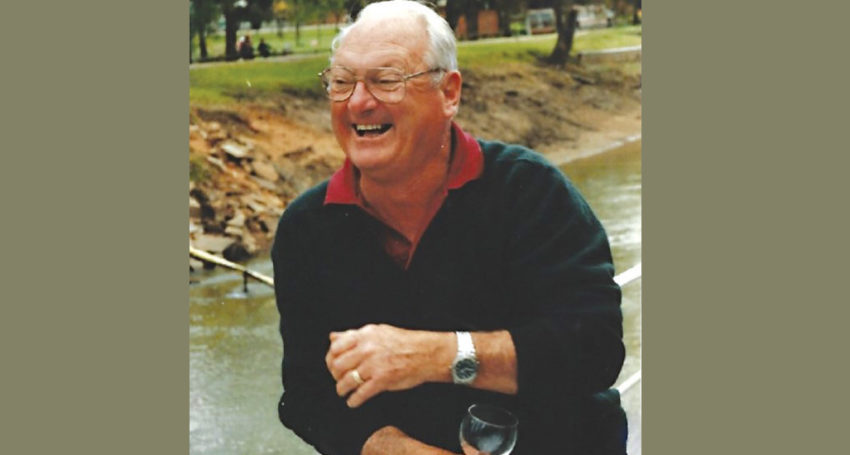
Dedicated member of the Knights of the Southern Cross, Philip Burns, died suddenly in Bendigo in December while travelling home from interstate. He was a State councillor, immediate past State secretary, a former State chairman, and part of the Fleurieu Peninsula Branch executive. At the 2019 annual general meeting he was presented with the Bill Keene Award for his outstanding service to the Knights. Below is an edited version of the eulogy given by his son Chris, the new chief executive of the Hutt St Centre.
Advertisement
Phil was born in Melbourne, the first son of Phyliss and Gerry Burns and older brother to Russel (Russ).
He was gifted academically at school and this was matched by his prowess on the sports field. How he became embroiled in the military remains an enigma. During his last two years at school, his ambitions ranged from industrial chemistry, architecture, teaching and a host of other professions.
Following a defence recruiting visit to his school, he found the prospect of free tertiary education, free board and lodging, free medical and dental, compulsory sports and a good wage all struck a mercenary nerve, and in 1951 he entered the Royal Military College, Duntroon.
While there were periods of homesickness in the first year, making the college 1st 18 Aussie Rules team, playing basketball and excelling at athletics proved to be major factors in his staying at Duntroon and graduating as a Lieutenant in 1954.
Phil met Lesley at Duntroon and they married soon after his graduation. Kerry, Anne, Kathy and Chris are products of their loving marriage of 53 years. Throughout those years they were inspirational role models who were firm and fair in their discipline while generously compassionate and loving.
Phil was a highly decorated and accomplished Army officer who performed a number of prestigious postings, including being the Aide-de-Camp or confidential assistant to Prince Philip during his visit to the Empire Games in 1962. Ever the gentleman and tactful, he described the Duke as being a “very difficult man”.
With a passion for parachuting, he volunteered for any job that involved a jump, and clocked up over 80 descents. His motivation for jumping was that if he maintained his qualification he earned an extra seven shillings and sixpence a week, which went a long way in those days and allowed his family to live a better life.
A period in his military career that was seldom discussed was his 12 month deployment to Vietnam. In 1965, Phil was selected to be a member of the recently raised Australian Army Training Team Vietnam (AATTV).
The AATTV was a specialist unit of military advisors that were predominantly special forces and were tasked with providing tactical advice, training and assistance to the South Vietnamese forces.
He never discussed his deployment until his son Chris joined the Army. ‘Every time I came home on leave, Dad would take me to the RSL Club on Sunday afternoon and that was his ‘safe place’ to relay his experiences,’ Chris recalled.
Advertisement
When he returned to Australia, the Army had him tour the country lecturing, training and writing policy on the conduct of clandestine and guerrilla operations based on his experience working with the South Vietnamese Army.
In 1968 the family embarked on the great adventure of a two-year posting to England, which was followed by four years at the defence facility at Port Wakefield.
Phil was selected for a promotion and unit command, but he and Lesley decided it was time to settle the family down in South Australia where he concluded his military career as the Deputy Commander at Keswick Barracks and went on to work with the SAPOL. But, he found his niche in the world of quality management and business improvement as an industry advisor at the South Australian Centre for Manufacturing.
Entering civilian life freed Phil to get more involved in his community. Be it with the RSL, Rotary, Legacy, Meals on Wheels, the Church, Probus, the Golf Club, Knights of the Southern Cross or the hotel social club, Phil committed himself, and often his family, unequivocally to every undertaking.
Never one to be a passive participant, he would rise through the leadership ranks and eventually take over the organisation.
In retirement Phil and Lesley were drawn to Goolwa, a town they loved to call home. Sadly, Lesley died in 2008 and this created an enormous void in Phil’s life.
But her death didn’t temper Phil’s commitment and compassion for his community. He also showed his true tenacity as he recovered from open-heart surgery and prostate cancer.
The family saw a tremendous metamorphosis in Phil after he met, got to know and eventually married Sue.


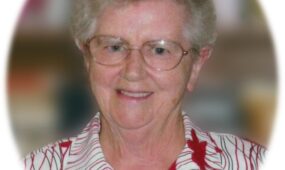
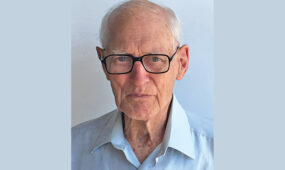
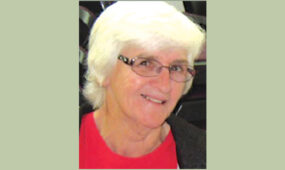
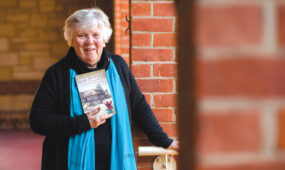

Comments
Show comments Hide comments